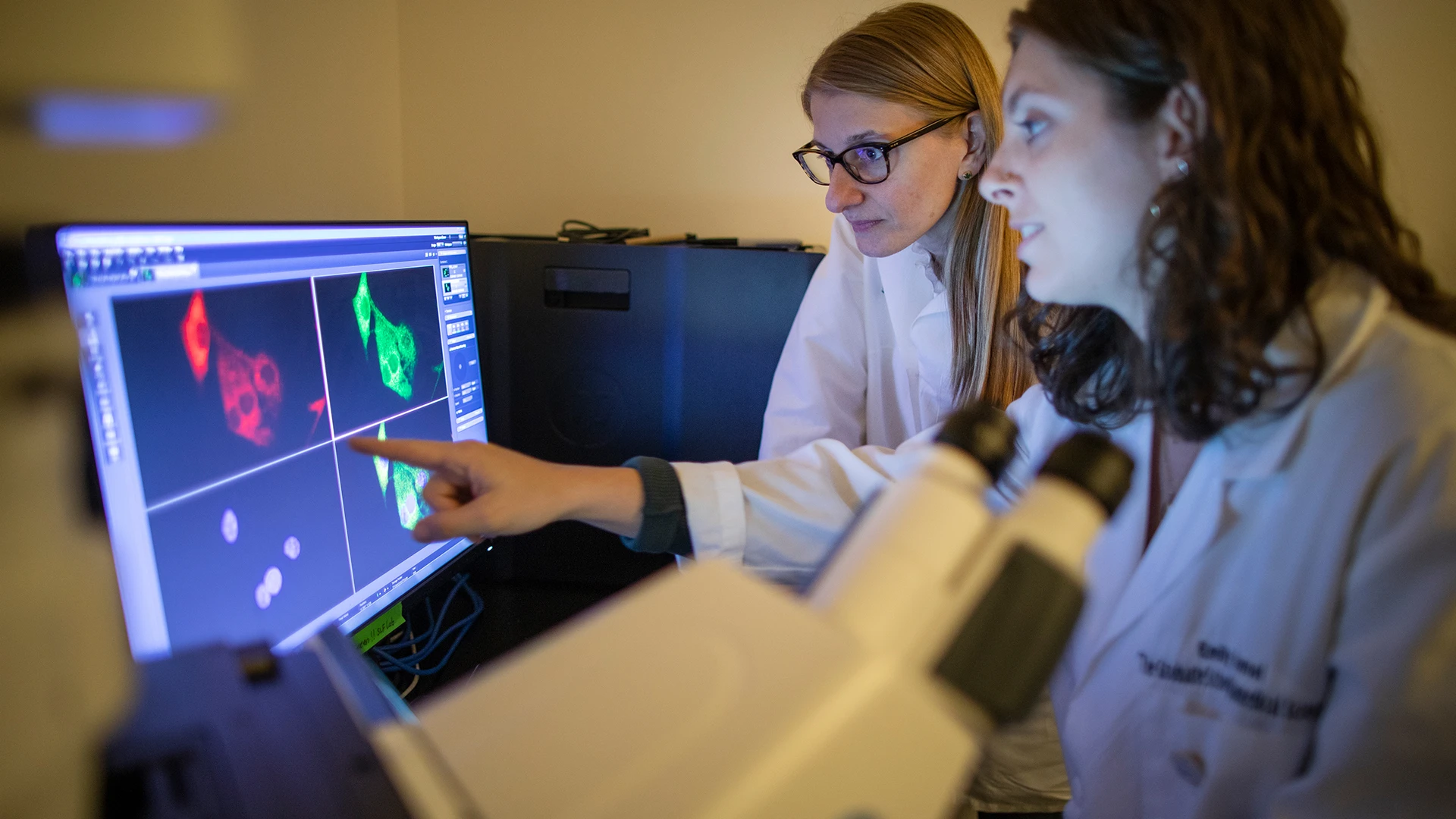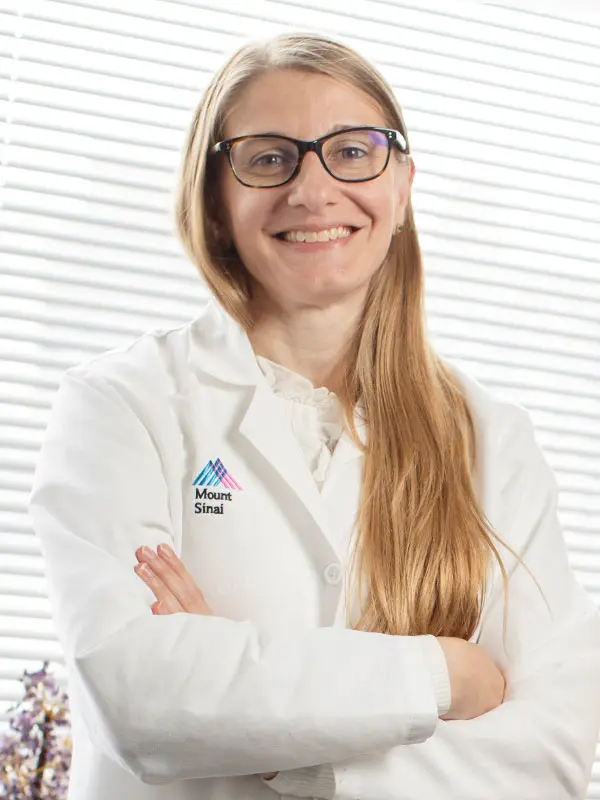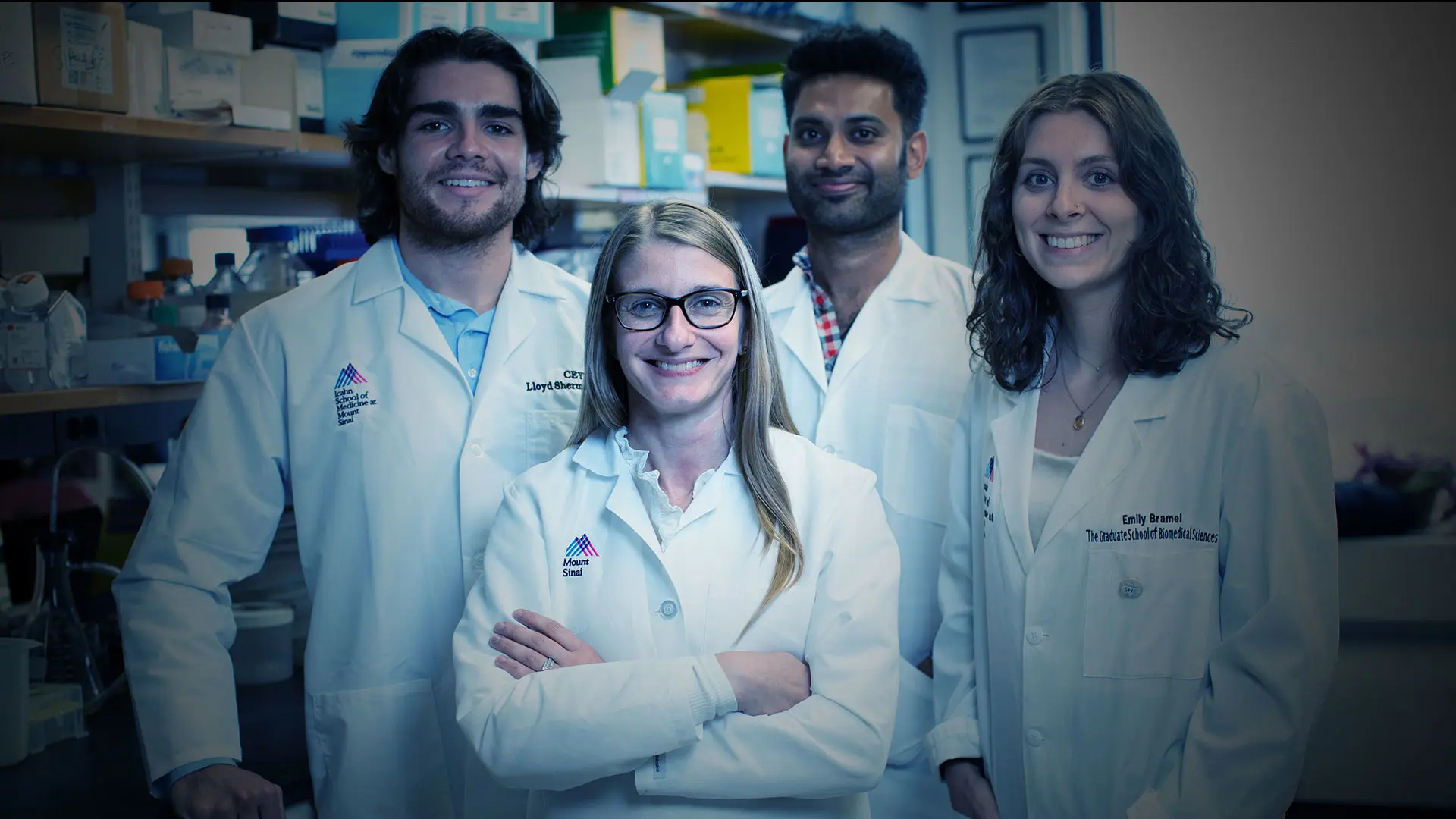Scientists at the Icahn School of Medicine at Mount Sinai are using next-generation sequencing technologies to uncover the secrets of bile duct tumors and their microenvironments. This research opens the door to developing new therapies for this rare but deadly cancer.
Daniela Sia, PhD, Assistant Professor of Medicine (Liver Diseases), specializes in cholangiocarcinoma (bile duct cancer) and other cancers of the hepatobiliary tract. In a study published in Gut in 2023, she and her colleagues reported five distinct classes of cholangiocarcinoma, each with a unique genetic signature and tumor microenvironment.
A More Refined Look at Bile Duct Cancer
In the United States, cholangiocarcinoma is relatively rare. But its incidence is growing for reasons experts have yet to identify, Dr. Sia says. “In the past 40 years, the incidence of these tumors has increased by 140 percent,” she notes. Cholangiocarcinoma tends not to cause clear symptoms early on, so it is usually diagnosed in advanced stages when surgical resection is no longer an option. It is also stubbornly resistant to chemotherapy, with a median survival of around 12 to 13 months.
Hoping to identify new treatment targets, Dr. Sia uses next-generation sequencing technologies to model the genetic determinants of disease and the mechanisms underlying its molecular and immune pathogenesis. Ten years ago, as a postdoctoral researcher, Dr. Sia generated one of the first molecular classifications of cholangiocarcinoma. She and others have built on those findings but have not yet translated them to clinical practice. Now, she’s expanding her approach.
“In the 10 years since that first study, we’ve learned that it’s not only the tumor cell that is important but also its microenvironment,” she says. “This new study is a more refined way of looking at cholangiocarcinoma.”

Dr. Sia and PhD student Emily Bramel view immunofluorescence staining of a novel potential therapeutic target in cholangiocarcinoma.
An Agenda for Future Research
In her recent analysis, Dr. Sia and her colleagues assessed molecular elements related to the stroma, tumor, and immune microenvironment (STIM). They found five distinct STIM classes, which differed in several facets, including the genotype, immune composition, and stroma type. “When we put this together, we can start making connections. It’s an agenda for future projects to learn about the biology of this disease,” she says.
Among the alterations Dr. Sia identified were mutations in genes known to have oncogenic activity, such as KRAS and FGFR2. Extending her findings to a mouse model, she proved that the genotype of a particular cholangiocarcinoma affects its immune microenvironment.
“In the future, I hope to identify correlations between the genotype of the tumors and the immune microenvironment. This will allow us to design combination therapies to specifically target each class of tumor type,” she says. “By understanding these underlying mechanisms, we can better exploit the beauty of combining targeted therapies with immunotherapies.”
Reaching this point has been challenging. Because cholangiocarcinoma is relatively rare, it has historically attracted little research attention. Dr. Sia based her early analyses of the tumor on data from just 150 tissue samples, collected by an international consortium of research institutions, including Mount Sinai. But as the incidence has grown, so has the research interest. Her latest analysis included data from 961 samples.
“In cholangiocarcinoma research, we entered the era of next-generation sequencing at a disadvantage because we didn’t have enough tissue to study,” Dr. Sia says. “But there has been significant growth in the field and an increase in knowledge since I started working on this cancer a decade ago.”
Studying a rare cancer still has challenges, including a lack of interest from commercial drug companies and lack of funding. But Mount Sinai has recognized the value of the research from its early days, Dr. Sia says. She first joined Mount Sinai as a postdoctoral researcher in 2012. In 2020, she was recruited to join the faculty and establish her lab. She plans to expand her research to other hepatobiliary tract cancers while continuing her longstanding mission to find new therapeutic targets for cholangiocarcinoma.
“I know there is a lot I can contribute to improving treatments for this disease,” she says. “But there is much more to discover, and I couldn’t do it without the institutional support I’ve received from Mount Sinai.”
Featured

Daniela Sia, PhD
Assistant Professor of Medicine (Liver Diseases)
